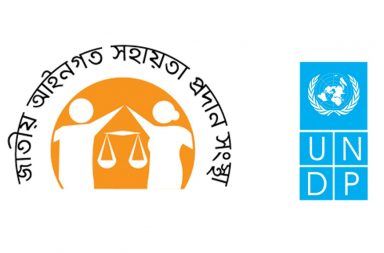By Shyikh Mahdi
In the constant tug of war between rights and development in a country like Bangladesh, the interests of the working class often submits before the might of capital, and therefore, even after a century of the historic sacrifices made by workers in Chicago, USA, the limitations of legal protections of the working class in Bangladesh subsist in an unchanged manner.
This article was first published in the Daily Observer
Bangladesh incorporated a few legislation into a single law, which was enacted as the Labour Act, 2006. Subsequently, Labour Rules, 2015 was formulated to supplement the procedural aspects of the Labour Act. Despite the efforts, the rights of the working class in Bangladesh are still inadequate and sometimes ineffective; some of the few instances are as follows:
The scope of the definition of ‘worker’
According to a study of Bangladesh Institute of Labour Studies (BILS), Bangladesh has a workforce (labours) of around 6 crores, amongst which the definition of the Labor Act, 2006 covers only 1.5 crores. This implicates that, almost 75% of the workforces in Bangladesh are not protected under the Labour Act, 2006 or the Labour Rules, 2015. Especially the employees working in mid-level managerial, supervisory or administrative positions are still left out of the coverage. A massive chunk of the workforce in the forms of domestic workers and child labours are not protected under the law. However, in the verdict given in BNWLA vs. The Cabinet Division, 31 BLD 265, the High Court Division directed that the domestic workers are to be included within the definition of workers under the Labor Act. This hasn’t seen the light of the day yet.
Judicial limitations: backlog of labour cases
The inadequacy of judicial support for labour proceedings in Bangladesh as well as the limited outcomes put the justice-seeking workers in a bleak situation. As of now, Bangladesh has seven labour courts and a labour appellate tribunal, on which around 16,000 cases were pending (until 2017). Sources said, 90% of the cases pending before the tribunals are about wages, and the rate of disposal of cases is very slow. Although the Labour Act stipulated a time-frame of 60 days for disposal of a case, it often takes months and years.
Another crucial aspect which requires serious overhauling is the compensation and redress mechanism for workers. Many victims of the catastrophic collapse of Rana Plaza in April 2013 (which killed more than 1,100 garment factory workers) as well as others from similar massive accidents are yet to receive adequate compensations. As a consequence, the alliance for workers safety was formed and an accord on Fire and Building Safety in Bangladesh was signed in 2013, but the improvement is scarcely visible.
Raising voice of the working class: trade union aspects
Under the current legal regime, the system for trade union registration is marred with complexities. The labour platforms i.e. trade unions are forced to meet a set of bureaucratic, burdensome and meaningless requirements, which sometimes allows the govt. officials to arbitrarily and unfairly reject applications for registration of the unions. Furthermore, the existing provisions of trade unions often create a tussle between the employers and the workers, and the employers often tend to adopt the ‘divide and rule’ policy for suppressing the voices of the workers in their respective establishments. In addition to that, the workers in export processing zones (EPZ), which cover a large percentage of Bangladesh’s workforce, are still unable to form trade unions.
Inadequate protection: security and rights of female workers
One of the most intriguing lacunas of the existing legal regime is the absence of any protection of the security/integrity of female workers. In the landmark judgment of BNWLA vs. Bangladesh, 29 BLD (HCD) 415, the High Court Division issued a detailed direction to address the issues of sexual or other forms of harassment at the workplace. However, in many workplaces like factories and RMG sectors, compliance with the High Court Division direction has not been established yet.
Challenges and Way forward
Articles 14, 15 and 20(1) of the constitution of Bangladesh talks about the rights of the working class in Bangladesh and article 34 of the constitution in particular states for the prohibition and forced labour. In light of the constitutional mandate of ending the exploitation of the working class along with the ratification of a number if international labour treaties, Bangladesh has an obligation to provide for the best possible legal protection for the working class. Nevertheless, under domestic and international pressure as the backlash of the collapse of the Rana Plaza, an amendment was brought on 2013 to the Labour Act, 2006 which also had many limitations and criticisms from different corners. It is high time an initiative for a proactive and progressive amendment is brought to the legal regime of labour law in Bangladesh.



